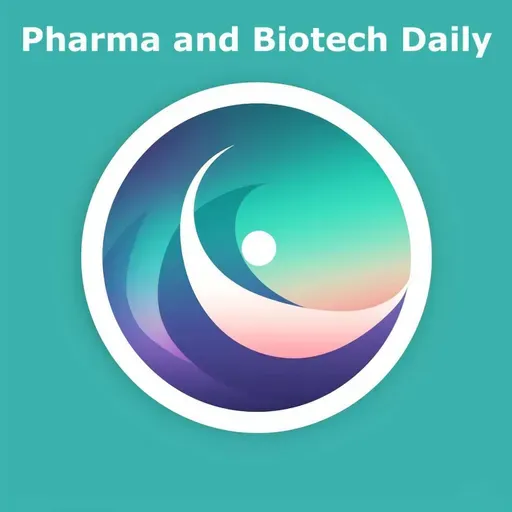
11 November 2025
Revolutionizing Drug Development: Key Breakthroughs and Strategic Moves
Pharma and BioTech Daily
About
Good morning from Pharma Daily: the podcast that brings you the most important developments in the pharmaceutical and biotech world. In today's rapidly evolving landscape, we witness significant strides shaping the future of drug development, patient care, and global market dynamics.Merck & Co. has made a notable advancement in cholesterol management with a PCSK9-targeted pill. This pill has achieved reductions in low-density lipoprotein cholesterol (LDL-C) comparable to existing injectable therapies. Such innovation represents a significant step forward by potentially offering a more convenient oral alternative for patients. The development underscores the industry's ongoing efforts to enhance patient compliance and therapeutic outcomes through novel drug delivery mechanisms.In a strategic corporate move, Pfizer has successfully acquired Metsera, an obesity biotech company, for a substantial $10 billion. This acquisition, which followed an intense bidding war with Novo Nordisk, exemplifies Pfizer's aggressive expansion in the obesity treatment market—a growing global health challenge. The strategic buyout positions Pfizer to leverage Metsera's expertise, potentially accelerating the development and commercialization of innovative obesity treatments.Meanwhile, Novo Nordisk is enhancing its presence in India by partnering with Emcure Pharmaceuticals to expand access to Wegovy, its weight-loss treatment. This collaboration is particularly significant given India's escalating obesity rates and highlights the importance of regional partnerships in enhancing drug accessibility and addressing public health issues.Regulatory developments continue to influence industry dynamics as well. The FDA has postponed its decision on expanding Rhythm Pharmaceuticals' Imcivree for additional indications. These regulatory delays highlight the complexities and unpredictabilities inherent in drug approval processes, underscoring the need for companies to strategically navigate these challenges.Regeneron and AstraZeneca have reported clinical trial successes with their respective anti-inflammatory drugs, Dupixent and Fasenra. These positive outcomes were showcased at the American College of Allergy, Asthma, and Immunology's annual meeting, bolstering the companies' aspirations for FDA approvals. Successful clinical outcomes not only pave the way for expanded therapeutic options but also demonstrate the industry's commitment to addressing complex inflammatory conditions.October has seen a surge in TV advertising spending, led by Johnson & Johnson's campaign for Tremfya. The campaign highlights the power of patient community engagement in bringing attention to conditions like inflammatory bowel disease (IBD), emphasizing how patient advocacy can reduce isolation among sufferers.In oncology, Cogent Biosciences is on track for an FDA submission following successful phase 3 trials of its cancer asset bezuclastinib. This development illustrates the critical role of rigorous clinical research in advancing oncology treatments and potentially improving patient outcomes.Turning our attention to technological frontiers within pharmaceutical R&D, Eli Lilly has been particularly active in cementing its commitment to artificial intelligence (AI) and gene therapy through several strategic collaborations. The company has entered into a $100 million-plus research agreement with Insilico Medicine to leverage AI for drug discovery. This partnership aims to expedite the identification of novel therapeutic targets and enhance drug development efficiency—a reflection of a broader industry trend towards integrating AI into pharmaceutical processes.Additionally, Lilly has made a notable move in gene therapy by acquiring rights from MeiraGTx for a retinal disease therapy that has shown promise in restoring vision in children born legally blind. This $475 million deal represents a leap forward in pers
Support the show